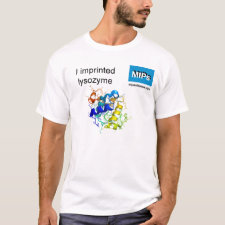
Authors: Fang GZ, Zhai XR, Deng QL, Yuan SF, Cao MR, Wang S
Article Title: Preparation and Evaluation of Lysozyme Molecularly Imprinted Polymer Film on the Surface of Multi-wall Carbon Nanotubes.
Publication date: 2012
Journal: Current Organic Chemistry
Volume: 16
Issue: (12)
Page numbers: 1461-1467.
DOI: 10.2174/138527212800672547
Alternative URL: http://www.ingentaconnect.com/content/ben/coc/2012/00000016/00000012/art00002
Abstract: Imprinting of macromolecule such as proteins with molecular imprinting technique remains challenge because of their bulkiness, structural complexity and sensitivity of denaturation. The purpose of this study was to synthesize a Lys-MIP film on the surface of the MWNTs by surface molecular imprinting technique, and subsequently selectively recognized and purified Lys from egg white. The Lys-MIP film was prepared using AAm as functional monomer, MBA as cross-linker, APS and TEMED as initiator under the optimized conditions. The polymer was characterized by TEM, FT-IR, TGA, and BET, as well. The equilibrium adsorption experiments and dynamic adsorption experiments were carried out to determine the binding capacity and the equilibrium time. The results showed that adsorption capacity of the Lys-MIP film was 20.89 mg g-1 at 0.50 mg mL-1, and adsorption capacity was 15.37 mg g-1 for the NIP. 82.10% of binging was obtained within 30 min and the adsorption equilibrium was achieved within 300 min. The selectivity adsorption experiments showed the Lys-MIP film had higher affinity and capacity for Lys than that for the competitive proteins, such as Cyt C, Mb, Hb and BSA. The relative selectivity coefficients for Lys/Cyt C, Lys/Mb, Lys/Hb, and Lys/BSA were 1.30, 1.30, 3.12 and 2.82, respectively. Purification experiment of Lys from egg white showed that adsorption capacity of the Lys-MIP film was 1.86 times more than that of the NIP. All these results proved that Lys-MIP film possessed high adsorption capacity and excellent selectivity. This material has great potential for separation of Lys in real samples.
Template and target information: protein, lysozyme
Author keywords: Egg white, Lysozyme purification, Multi-wall carbon nanotubes, molecular imprinting, protein recognition, surface imprinting, reagents, polymer, adsorption, Gravimetric



Join the Society for Molecular Imprinting

New items RSS feed
Sign-up for e-mail updates:
Choose between receiving an occasional newsletter or more frequent e-mail alerts.
Click here to go to the sign-up page.
Is your name elemental or peptidic? Enter your name and find out by clicking either of the buttons below!
Other products you may like:
 MIPdatabase
MIPdatabase









